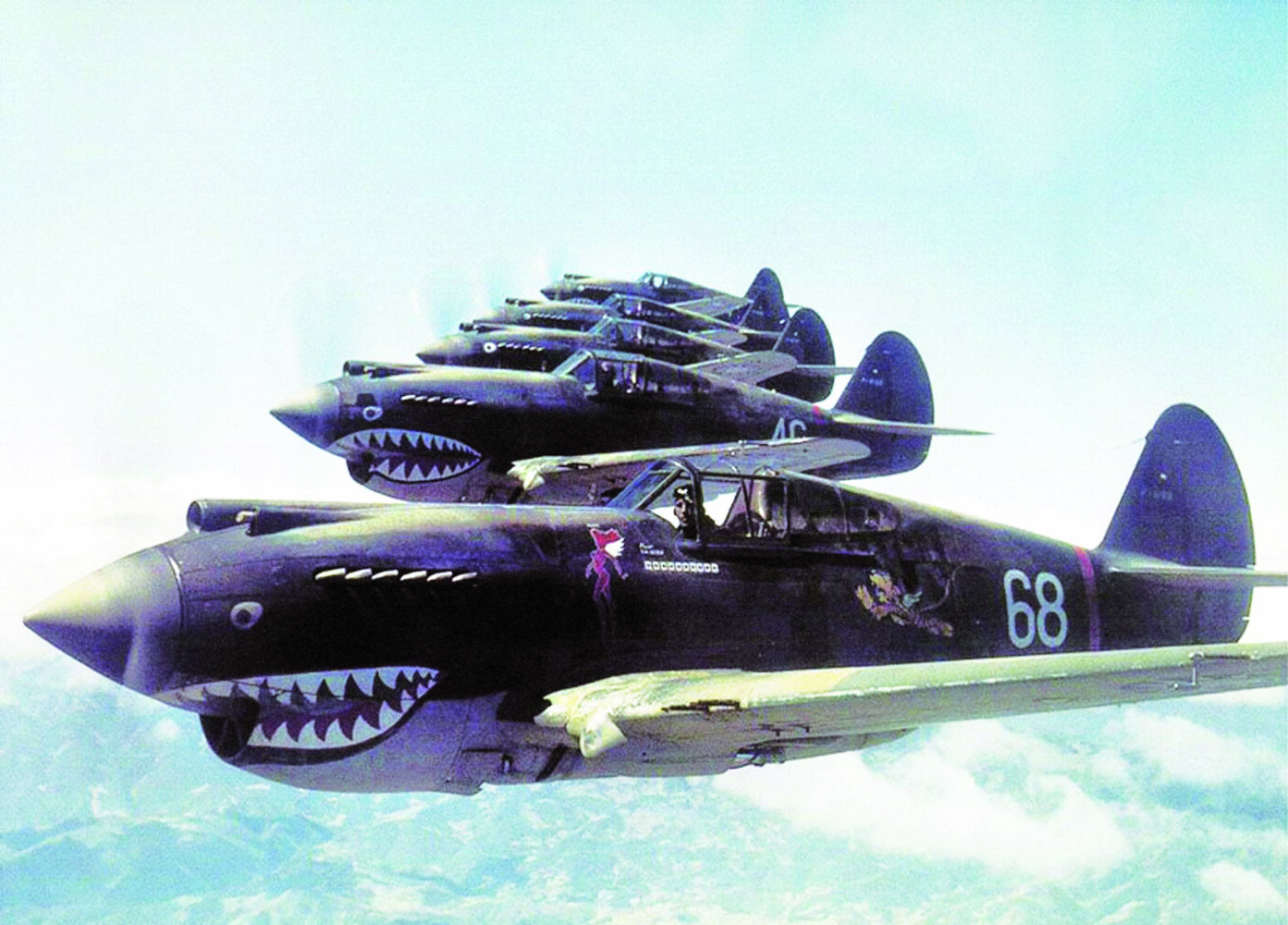Summer 2018
Heart of a Tiger
How a Monroe man’s legacy nurtures community, economy, and international relations
Published: April 19, 2021
Last Updated: April 19, 2021

Photo by R. T. Smith
The Flying Tigers of Chennault’s American Volunteer Group were famous for their shark-nosed P-40 planes.
In 1937, Claire Lee Chennault received a three–month contract to advise the fledgling Chinese Air Force. Chennault, a retired veteran from northeast Louisiana, shared the news in a letter to his brother. “[The job] may amount to very little except a good paying position,” he wrote, “but it may amount to a great deal…it is even possible that my ‘feeble’ efforts may influence history…I couldn’t possibly pass up this opportunity for, after all, very few boys from Gilbert, LA will ever have the slightest chance to influence the history of the future years.”
Chennault’s inclination proved correct. With the arrival of the Second Sino-Japanese War, Chennault created and commanded the American Volunteer Group (AVG) of the Chinese Air Force, better known as the Flying Tigers. Although the AVG only fought for seven months, they destroyed 299 Japanese planes, with an additional 153 thought to be destroyed. The group disbanded in July 1942 after having exhibited, in President Roosevelt’s words, “outstanding gallantry and conspicuous daring.”
Chennault rejoined the American military in 1942, then retired again in October 1945. He moved to Monroe in 1950, and on July 18, 1958, received an honorary promotion to lieutenant general. He passed away nine days later at Oschner Hospital in New Orleans.
Nell Calloway, Chennault’s granddaughter and CEO of the Chennault Aviation and Military Museum in Monroe, says that prior to his adventures in China, her grandfather “was told many times that he was just a Louisiana farm boy, and what did he know about flying airplanes? What did he know about going to China? But he did, and he went.”
It’s a good thing he did. Today, many in the Air Force consider Chennault the father of tactical pursuit, and the Flying Tigers are remembered as one of the most celebrated fighting forces in modern warfare. Both Chennault and the Tigers are revered in China, where statues, memorials, museums, and exhibits honor their service. Admirers regularly make the journey to Ouachita Parish to visit the museum.
“China Central Television was here last week to film a documentary,” says Calloway. “We’ve been on the nightly news there twice.” Calloway says that the people of Monroe haven’t always been as aware of Chennault’s accomplishments as their international visitors. The full significance of his career was reflected locally in 2006 when the University of Louisiana Monroe changed their mascot to the Warhawks, the type of the plane flown by the Flying Tigers. Then, in 2016, the Flying Tiger Brewery opened its doors on 2nd Street.
“China Central Television was here last week to film a documentary. We’ve been on the nightly news there twice.”
In a 2016 interview with Bayou Life magazine, the founders noted their respect for the brewery’s namesake. “Our avenue is giving back to Chennault Museum, our connection, our history,” said co-founder James E. Simpson. The brewers have also adopted Chennault’s propensity for service. The Northeast Louisiana Arts Council (NELA Arts) nominated Flying Tiger Brewery for its 2018 Business Art Award, an honor given to companies that stabilize and expand the local arts scene. The brewery also stepped in when the council needed a venue for its summer film series.
“The owners didn’t hesitate to offer the space for free,” says Danielle Kelley Tolbird, Community Development Coordinator at NELA Arts. “That’s indicative of everything they do related to arts and culture.” All the more fitting, too, that the first film in the series was Heart of a Tiger, a documentary about a Flying Tiger pilot who was shot down behind enemy lines.
Chennault’s legacy isn’t just a boon to cultural activities. Calloway sees the potential for an economic impact that could have implications for US-Chinese relations. Representatives of Yuhung Chemical, Inc., a company building a $1.85 billion methanol plant in St. James Parish that will create hundreds of jobs, visited the Chennault Museum in 2015 to celebrate the 70th anniversary of the end of the war. They gave a generous donation to the museum and had medals made for five local veterans who had fought in China. Calloway believes the late general’s popularity may help draw more Chinese investors to Louisiana. But it’s not just about money.
“We need to remember that once, we saw [the Chinese] as friends and rescuers,” says Calloway. “Just think, if we put our differences aside, what we could accomplish in peace times for future generations.”
Morgan Randall is a writer exploring the relationships between people, the environment, and business. You can find her at morandall.com.
